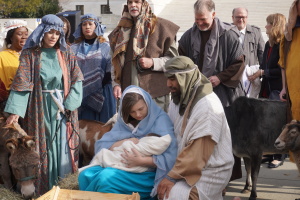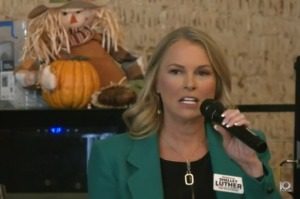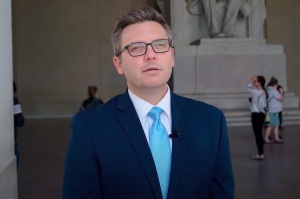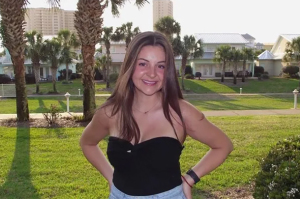Ex-Pastor Turned American Atheist Director Tells How She Lost Faith
A former Methodist worship and teaching pastor who served in ministry for 20 years before becoming an atheist has been appointed as the American Atheist's public relations director. In an interview with The Christian Post, she revealed that despite initially being ostracized by friends, she is now happy and at peace with her decision.
"No it was very, very gradual. Actually there's not really one single moment where I can look back and say ah, that was the moment. It was kind of a slow progression," Teresa MacBain shared about her loss of faith with CP in a phone interview on Tuesday.
After leaving her ministry earlier this year, MacBain, a Florida resident, also served as executive director of the Clergy Project, which offers support to former clergy members who have lost their faith and become secularists.
"My husband and kids were fine, they knew that things had changed for me, but extended family, I lost those relationships. I lost all of my friendships except for one couple. I have one maybe from the church that I'm still in contact with, but initially they were all just very angry. They locked me out of the church and it took me some months to collect my belongings. It was a very difficult situation," MacBain explained about reaction to her initial announcement.
There were those from the church who tried to reach out and speak to her, but those discussions did not go far.
"One pastor that was a former colleague of mine did reach out immediately and I went and sat down and talked to him. He discussed everything and let me share. It was kind of an intense conversation, but after that I haven't heard from that person anymore. I'm not really sure, I guess he just wanted to find some answers," she said.
Unable to point to one specific incident that made her change her mind about God and the Bible, MacBain chronicled the train of thought that led her from the Christian faith to her secularist reasoning today.
"It's just theological. I had no problems with the church or the structure or the organization. There are basically four steps that occurred over a long period of time. One was the contradictory nature of the Bible; the lack of scientific or historical foundation or accuracy, which took me a very, very long time to come to terms with. That was the starting point I guess when I realized that that wasn't true, that the Bible wasn't true. From there I moved to thinking about all of the religions in the world and how people basically associate, in most cases, with one religion or another based upon their own culture and how they were raised," she said.
"So I kind of moved into a position where I thought that all religions were equally valid and that it kind of depended on who you were and how you were raised but that we were all on the same journey. From there I moved to the question of the existence of hell and trying to understand how a supreme being could create humans that according to the Christian Bible are very weak and finite, as compared to God. How that creature, being, entity, whatever you want to call it, could punish them eternally in such a horrible and torturous place as hell. So that was kind of a third discovery."
While the former teaching pastor confessed that often during her ministry she had doubts about her faith, now as an atheist she feels more secure about her views in life.
"I feel secure. I feel peaceful. I just kind of clarified the doubts. All the while I was having those doubts and trying to struggle with those issues, I always felt that it would make me a stronger Christian. That it would make me a better pastor. It wasn't until it really hit home for me, where I was at, that I realized that instead of that I had actually grown much further away from my faith to the point of I no longer had faith."
In her new position as public relations director for American Atheists, which is one of the largest secularist organizations in the U.S., she says that her main goal is to defend First Amendment rights and continue fighting for the separation of church and state.
"I think one of the misunderstandings about what the term atheist means is that all of us think we're 100 percent certain that no one can change our minds about the belief in God, which isn't completely accurate. An atheist as far as what I believe means that we don't see any evidence; we don't think there is a God. We're very skeptical about it and choose to live our lives without God," MacBain said.
"Instead of looking to an outside source for the solution to humankind's problems, we see that responsibility as [our own]. We have to reach out and support each other. We can't say a prayer to an invisible being somewhere and expect that to be the solution. The solution has to be when one human reaches out to another."
The Clergy Project, with which MacBain serves in a voluntary role, was created in March 2011 as a private, invitation only, website for "for active and former clergy who do not hold supernatural beliefs." Starting with 52 members, it now has more than 300 members, according to the website.
CP reporter Brittney R. Villalva contributed to this report.
READ: IS THE ABSENCE OF EVIDENCE FOR GOD EVIDENCE OF GOD'S ABSENCE?




























